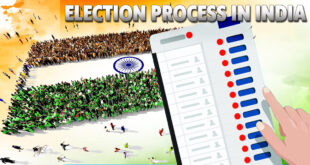People of different faiths must find a fit between their own distinctive way of reaching the ultimate and a common, basic framework for living together
A Minister of the West Bengal government, Siddiqullah Chowdhury, reportedly remarked recently that for Muslims, “our holy scripture, the Quran Sharif, is supreme and if any constitutional provision… contradicts the Quran, then our scripture will prevail and not the Constitution”. This statement is deeply condemnable in a constitutional democracy and nothing justifies it. He might have been better off paying heed to his own Chief Minister who, a few years ago, categorically said that while “we respect all holy books… the Constitution is the holy book in a democracy.” There is a great deal of truth in this assertion. On January 26, 1950, for the first time in Indian history, we, believers and practitioners of diverse philosophies and religions, decided to also become the people of a single book. This was the only way to knit ourselves together into one modern nation — not only because, taken collectively, we find ultimate worth in many books, but also because we live with traditions where books are religiously irrelevant: devotional singing, ritual performance, meditation, truthful self-examination is enough. Henceforth, each of us had to find a fit between our distinctive way of reaching the ultimate — one god, many gods and goddesses, or indeed no god at all — and a common, basic framework for living together. No matter how inadequate our Constitution, an enduring consensus exists that it provides a strong, secure foundation for an inclusive, dignity-protecting, and freedom-sensitive society. Devised by men and women of diverse faiths, speaking different languages and belonging to different castes, its basic structure is sound and needs no altering. To realise critical respect, the state needs not strict separation but principled distance from all religions. Principled distance requires the state to eschew a formal alliance with religion but not to build an insurmountable wall between the two. The state disengages from religion or engages with it, engages positively (actively promoting religion) or negatively (intervene to inhibit it), and in order to treat all as equals, does not accord the same treatment but, as the occasion demands, helps or hinders one religion more than others. Thus, without abandoning overall respect for Hinduism, the degrading practice of untouchability justified by certain Hindu texts and commentators and thereby declared by some as part of Hinduism had to be abolished. This constitutional intervention was required to do justice to those Dalits who did not disown Hinduism. In fact, if, despite formal, doctrinal commitment to equality, this degrading practice persists in other religions such as Indian Islam and Christianity, then the state must intervene in them too. Not doing so treats Muslim and Christian Dalits unfairly.
Hindus who complain that state intervention has been unfair to their religion have got it completely wrong. This is like a patient who has benefited from surgery but is resentful of those who also need it but are not fortunate enough to receive the treatment. Nothing can be more absurd! In short, the state acted in a pro-Hindu manner and with indifference to the injustices within other religions. Much the same is true when in 1956, thanks to the efforts of Ambedkar, Nehru and several progressive Hindus, Parliament partially reformed Hinduism by passing the Hindu Code Bills. They saved Hinduism from decay by giving Hindu women a stake in their received religion — for the first time, they could remain Hindus and yet move towards greater equality and freedom. The majority of Hindus benefited from it even if a section of the Hindu orthodoxy was displeased. Alas, Muslim women could not benefit from this reform and continue to be victimised by patriarchs.
Stop abominable practices
No matter how suspect the Minister finds the motives of the current government, and how illegitimate the ordinance route to ‘reform’, the fact is that instant triple talaq is an abominable practice rejected by many Muslim countries. It gives enormous power to Muslim males, and is deeply degrading to Muslim women. Perpetuating it when other forms of civil contractual practices, compatible with both the Constitution and a more meaningfully interpreted Quran, are available continues an injustice to existing victims and disrespects the ‘holy book’ of democracy.
Check Also
The Transplantation of Human Organs and Tissues Act (THOTA)
Concept The Transplantation of Human Organs and Tissues Act (THOTA) was enacted in India in …
 Chinmaya IAS Academy – Current Affairs Chinmaya IAS Academy – Current Affairs
Chinmaya IAS Academy – Current Affairs Chinmaya IAS Academy – Current Affairs



